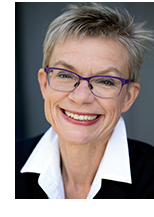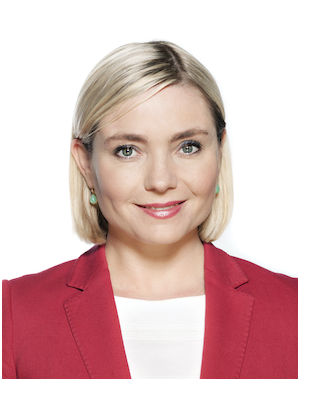by Hakon Heimer
18 May 2020
[Editor's Note: This news story is accompanied by an NSHG-PM FORUM commentary by the organizers of the Nordic deans meeting.]
Just before the corona virus upended life as usual in the Nordic countries, the health and medical deans of the region held a one-day symposium and workshop on Nordic Precision Medicine: Cooperation in Enabling Research and Education. The 28 February meeting was hosted by the University of Copenhagen Faculty of Health and Medical Sciences, and co-sponsored by the Nordic Society of Human Genetics and Precision Medicine.

The goal of the meeting, noted dean Ulla Wewer of UCPH, who chaired the organizing committee, was to help the academic leaders explore how they would fulfill their range of responsibilities for the development of medicine that uses Big Data from populations as well individual patients. In particular, they were interested in identifying the advantages of Nordic collaboration in large-scale research projects supporting precision medicine, as well as new joint teaching initiatives targeting the present and future workforce in healthcare and academic and industrial research.
Other members of the deans organizing committee were Ivar Gladhaug (University of Oslo), Ole Petter Ottersen (Karolinska Institutet), Risto Renkonen (University of Helsinki), Engilbert Sigurðsson (University of Iceland), and Eric Renström (Lund University).
Among the more than 50 participants were leading Nordic scientists, health research policymakers and funders from all five nations, and participants from Nordic cooperation organizations in policy and science. The overwhelming message was that there is an opportunity in the next decade for the Nordic countries to be world leaders in such large-scale, joint undertakings and that the time is ripe for taking advantage of the current window of opportunity.
The science is ready
Kári Stefánsson of deCODE genetics in Iceland showed the potential for a Nordic collaborative health structure, where research, translation, and clinical care are integrated. The science community is ready to take that step into big-data research, he noted, and talks by Aarno Palotie (Institute of Molecular Medicine Finland FIMM), Paul Franks (Lund University), Ole Andreassen (University of Oslo), and Søren Brunak (University of Copenhagen) presented existing strengths and relevant precision medicine projects underway in the individual countries that would be an excellent basis for further joint work.
In order to benefit from the combined power of Nordic health data, these national resources must be brought together in a safe and responsible way. To that end, Nordforsk recently delivered “A vision of a Nordic secure digital infrastructure for health data: The Nordic Commons,” to the Nordic Council of Ministers. NSHG-PM founding member Juni Palmgren of the Karolinska Institute, who led the expert group for the report, presented the vision, which provides a roadmap for creating a joint Nordic health data system for research (see NSHG-PM news story).
Funding and political will
Since many of the resources—expertise, collaborations among scientists, and rich data sources—are already present or achievable, what else is needed? From the funding world, Niels-Henrik Holstein Rathlou, senior vice-president of the biomedical and health science area at the Novo Nordisk Foundation, and Arne Flåøyen, director of NordForsk, described how their organizations’ resources, strategies, and expertise within personalized medicine and data science might support ambitious Nordic research collaborations.

Finally, political will is the key ingredient to create a collaborative Nordic precision medicine system, a message that was delivered by many participants, but especially speakers from the policy sphere, including Per Okkels, permanent secretary of the Danish Ministry of Health, and Lilja Dögg Alfreðsdóttir, Islandic Minister of Research, Education and Culture. This is a very achievable goal in cultures that value healthcare for their citizens and recognize that data is the basis for innovations that can improve the quality of life and benefit the economy at the same time, noted Alfreðsdóttir in her summation remarks.
However, the participants agreed that it was up to the scientists and academic and clinical leaders to help the public and policymakers to understand the enormous potential of more precise and personalized medicine to the Nordic societies, and that the Nordic experts in the domain are ready to take the next step.

